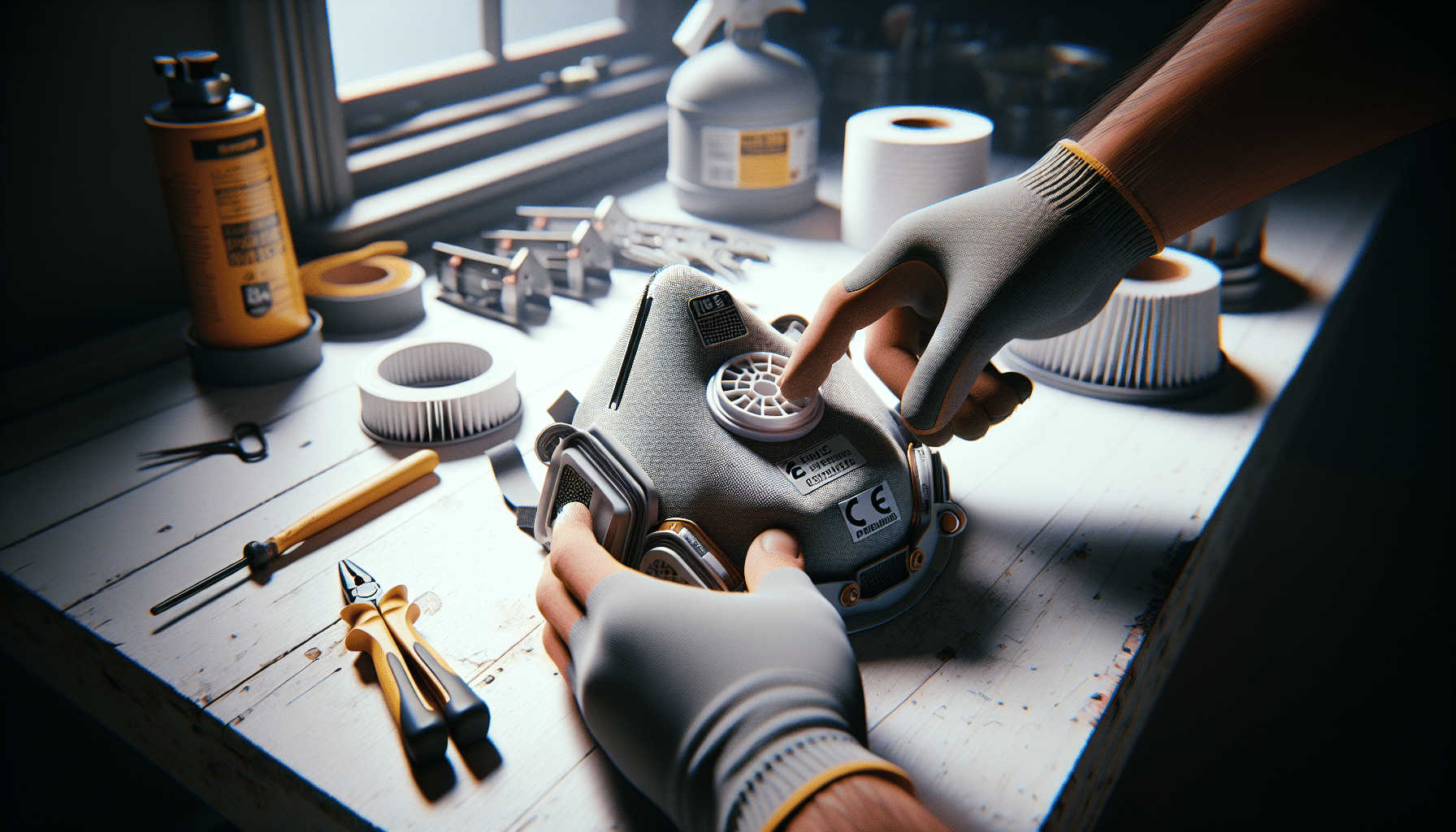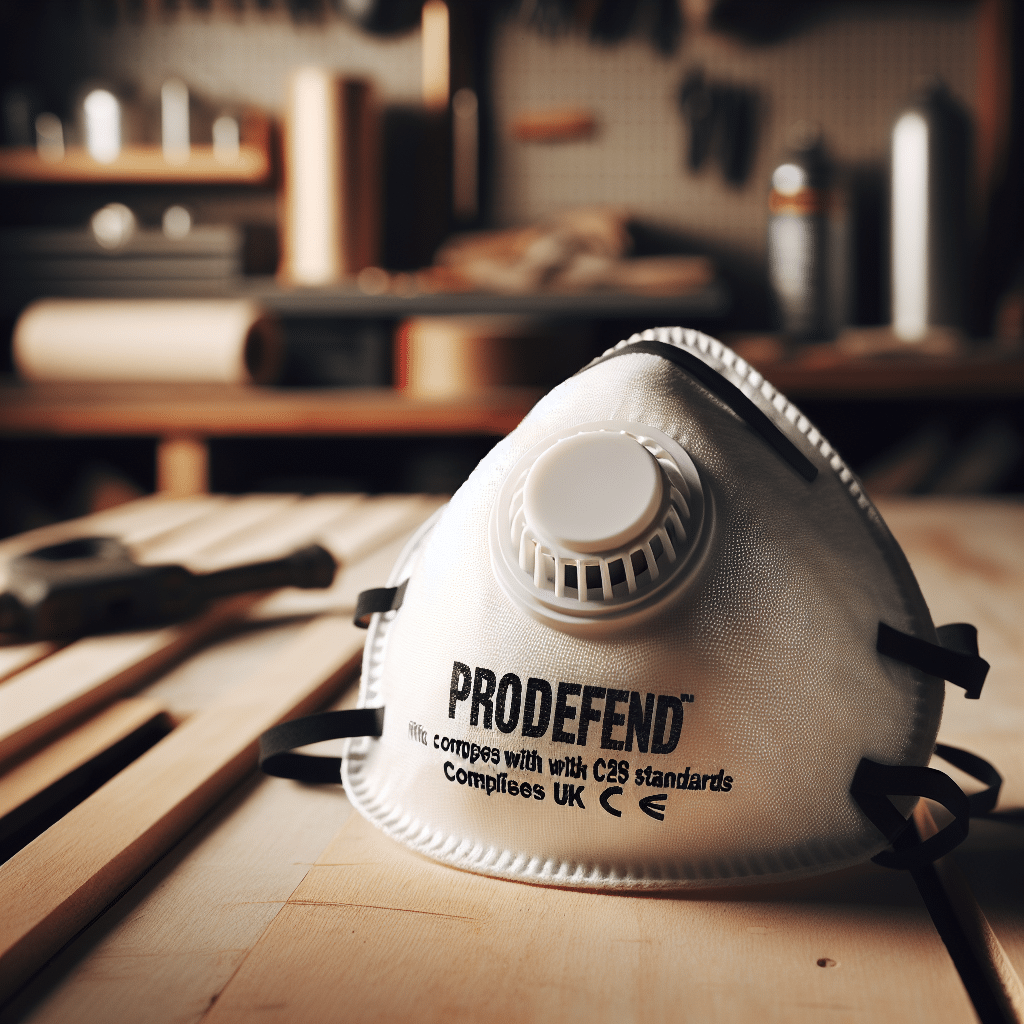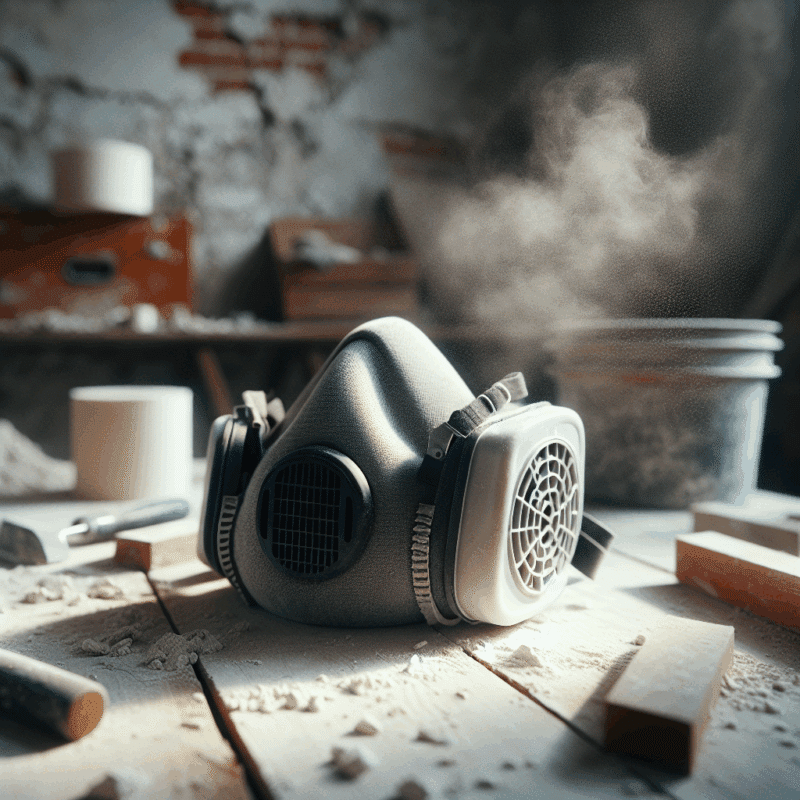N95 CE Marked Filters: What ProDefend Certification Means for DIYers
In This Article
- N95 CE marked filters meet dual US-European standards, offering versatile protection.
- ProDefend certification adds reliability via rigorous performance testing.
- DIY tasks often create fine particulates—adequate filtration is vital for health.
- N95 masks are more breathable than FFP3, ideal for prolonged use in domestic projects.
- Legal standards in the UK still recognise CE marked equipment for personal use.
- Choose filters based on specific activity types—don’t adopt a one-size-fits-all mindset.
- Replace filters regularly and monitor wear indicators to maintain efficacy.
- N95 CE marked filters offer high value for budget-conscious and safety-focused DIYers alike.
Understanding CE and N95: The Basics
Global standards compared
When it comes to respiratory protection, understanding certifications is crucial. N95 CE marked filters represent a powerful combination of American and European quality standards. The N95 designation, regulated by NIOSH in the United States, denotes that the mask filters at least 95% of airborne particles. However, CE marking is a European requirement declaring conformity with health, safety, and environmental protection legislation. If a product is CE marked, it legally meets the requirements to be sold across the European Economic Area (EEA).
So, what does this mean for British consumers? Simply put, N95 CE marked filters deliver trusted performance validated on both sides of the Atlantic. In a DIY context where exposure to fine particles like dust, mould spores, and paint vapours is common, these filters are indispensable. Learn more about Respirator Masks & Protection Standards provides additional guidance on selecting compliant PPE in the wake of Brexit regulations.

What ProDefend Certification Guarantees
Insights into real-world protection
ProDefend offers industry-leading personal protective equipment specifically tailored to DIYers and tradespeople. An N95 CE marked filter that is also ProDefend certified ensures a higher standard of quality control beyond regulatory minimums. Each ProDefend product undergoes rigorous testing across multiple filtration categories, including particulate, oil, and non-oil aerosol resistance.
Moreover, ProDefend utilises proprietary testing environments modelled after real-life scenarios—such as woodworking workshops or garages with poor ventilation. This means that their N95 CE marked filters are not only compliant but optimised for conditions you actually face. For individuals undertaking renovations, crafting, or automotive repairs at home, this added assurance translates to safer breathing and better health outcomes.
“ProDefend doesn’t just meet the standard—they redefine it for everyday professionals.”
Why DIYers Need Advanced Filtration
Do-it-yourself activities might seem relatively innocuous, but many home improvement tasks generate hazardous aerosols and airborne particles. Sanding drywall, applying resin, or simply sweeping up construction dust can release a host of fine and ultrafine particles into the air. Without adequate filtration, these particles can penetrate deep into your lungs, leading to respiratory distress or long-term illness.
N95 CE marked filters mitigate these risks by trapping 95% of such particles before they can be inhaled. And because ProDefend combines this with ergonomic design and breathable materials, users experience comfort even during extended wear. This is especially vital for enthusiasts who spend entire weekends immersed in renovation projects. Using substandard masks may leave your health exposed—literally.
Comparing FFP2 vs FFP3 in DIY Settings
One common area of confusion involves distinguishing between FFP2, FFP3, and N95 masks. In Europe, FFP ratings are the benchmark for respiratory protection. FFP2 masks offer similar protection to N95, filtering out approximately 94% of particles. FFP3 masks provide an even greater defence with a filtration capability upwards of 99%. However, these masks often introduce greater breathing resistance.
So where do N95 CE marked filters sit in this hierarchy? Although technically equivalent to FFP2 in filtration efficiency, they often feature better breathability and more flexible design profiles. DIYers working in varying conditions—from humid basements to open-air patios—may find N95 CE marked filters more adaptable and comfortable. In contrast, FFP3 masks may be more appropriate for asbestos removal or other highly hazardous tasks.
The best approach depends on your specific project scope. When in doubt, consult health and safety guidelines via FDA guidance on N95 and CE marked masks before starting.
Legal Safety Requirements in the UK
Since 1 January 2021, the UK has formally exited the European Union’s regulatory framework, meaning some CE markings no longer hold automatic legal authority. However, transitional arrangements and mutual recognition agreements allow certain CE marked products, including respiratory face masks, to remain valid until at least 2025 in many applications.
N95 CE marked filters certified by ProDefend are recognised through these mutual agreements and are considered legal for use in domestic and professional projects across Britain. Employers and independent contractors should still verify certification documentation and ensure compatibility with Health and Safety Executive (HSE) requirements. New EU product safety rules explained offers updated legal guidelines concerning PPE standards under UKCA, CE, and EN rules post-Brexit.
For home users, especially those embarking on DIY renovations or crafts involving fine particulates, N95 CE marked filters certified by established brands like ProDefend offer an accessible and compliant solution. Ensuring your gear meets recognised standards is not just legal—it’s lifesaving.
Choosing the Right Filter for Your Projects
Not all filtration needs are equal. For casual woodworking, basic FFP1 or cloth masks might suffice, but tasks producing finer dust or involving chemical fumes absolutely require high-efficiency filtration. N95 CE marked filters shine in this domain thanks to their particle-blocking capabilities and reliable fit.
ProDefend manufactures a range of filter options, including valve and non-valve varieties. Valve filters are excellent for comfort during prolonged use by reducing moisture build-up inside the mask. However, in scenarios requiring source control—such as working near other individuals—non-valve models are advised. Features like adjustable nose pieces and secure elastic straps further enhance both safety and usability.
When choosing a filter, also consider the work environment. Confined indoor areas with poor ventilation amplify the need for better filtration. Similarly, handling substances such as fibreglass insulation or spray paint demands meticulous respiratory care. Consult manufacturer guidelines and always assess hazards before commencing work. Read a related article includes detailed tables for different tools and their ideal PPE complements.
Real-Life Scenarios: Paint, Dust, and Resin Use
Let’s examine a few real-world uses where N95 CE marked filters prove invaluable. First, painting projects—especially when using aerosol-based spray systems—can release volatile organic compounds (VOCs) that pose long-term health risks. Even short exposure without protection can lead to headaches, nausea, and respiratory irritation.
Next, cutting or sanding various woods, especially hardwoods like oak or walnut, generates very fine dust. These particles can contain natural toxins that inflame the airways over time. N95 CE marked filters block the majority of this particulate matter, keeping lungs safe.
Resin casting, becoming increasingly popular among hobbyists, introduces further complications. Liquid resin fumes are not just noxious—they can be carcinogenic with repeated exposure. Employing a certified N95 CE marked filter with chemical-resistant properties mitigates these risks while also ensuring that distraction from smells and vapours doesn’t compromise your craftsmanship.
In all cases, pairing the right mask with effective ventilation and periodic breaks can enhance both health and work quality.
How Long Do ProDefend Filters Last?
The longevity of your N95 CE marked filter greatly depends on the project environment, exposure concentration, and duration of use. Generally speaking, disposable filters should be discarded after eight-hour cumulative use. However, if the mask becomes soiled, smells unusual, or breathing becomes difficult, replacement may be required sooner.
ProDefend provides detailed wear-time guides on their product packaging and online resources. Their advanced filters also include internal status indicators that fade when filtration capacity is compromised. This visual cue removes the guesswork, helping DIYers manage their PPE effectively without relying solely on subjective impressions.
Routine inspection is critical. Look for signs of degradation such as cracked straps, loose nose seals, or visual contamination. Ensure that filters are stored in dry, clean environments between uses. It might be tempting to reuse disposable masks to save money, but this significantly degrades performance and exposes you to avoidable risks.
Are N95 CE Marked Filters the Best Value?
From a cost-efficiency standpoint, N95 CE marked filters strike a practical balance between affordability and high-end protection. While alternatives like FFP3 masks or powered respirators offer enhanced performance, their price points and bulkiness may be excessive for most home users.
The real value of N95 CE marked filters lies in their versatile application. Whether sanding a shelf, spraying a garden structure, or volumising plaster walls, one mask model can serve multiple functions. Brands like ProDefend are particularly user-centric, ensuring that every unit combines protective power with ergonomic finesse.
Moreover, bulk purchase options and refill packs make stockpiling economical. This is especially useful for active DIYers who embark on projects regularly. Smart investment in quality PPE upfront prevents long-term health costs and allows you to focus more on the creativity and satisfaction of your work.
Making Informed DIY Respiratory Decisions
Being informed is the cornerstone of safe and effective DIY practices. Don’t rely on guesswork or outdated advice. Choose personal protective equipment that aligns with modern standards, such as N95 CE marked filters, and verify manufacturer credentials.
Before each project, review the associated respiratory hazards and match them to the appropriate level of filtration. When possible, seek out options backed by third-party certification like those provided by ProDefend. Doing so ensures not only your immediate safety but also your long-term wellbeing.
Key Takeaways for Safer Home Renovation
[CONCLUSION_CONTENT]
Great guide on n95-ce-marked-filters-prodefend-diyers – Community Feedback
Are ProDefend filters CE marked for UK DIY use?
Yes, ProDefend filters carry CE marking, demonstrating compliance with UK and EU standards for occupational and DIY respiratory protection.
What is the difference between N95 and CE marked filters?
N95 is a US filtration standard, while CE marking indicates compliance with European norms. A filter with both means it meets strict US and European requirements.
Why is ProDefend certification important for home renovators?
ProDefend certification guarantees tested filtration for dust, paint, solvents, and odours—vital for DIYers seeking proven protection for lung health during projects.


